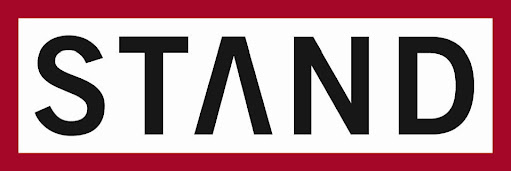I would like to take a moment away from the focus on Darfur to highlight the worrying events of the past week in the Great Lakes Region of Africa. While Stand focuses almost exclusively on Darfur and Sudan in its activities (with good reason), it is important to our fundamental mission of making preventing genocide a cornerstone of Canadian foreign policy to stay informed about all pertinent events in the world.
For those who don't know, over the past week the eastern region of North Kivu in the Democratic Republic of Congo (DRC) has embarked on a spiraling descent into further violence and chaos. North Kivu is a resource-rich area that has been more or less at the center of the various wars and violent conflicts in the region since the end of the Rwandan genocide in 1994 (many of the Hutus responsible for the Rwandan genocide fled to this region). Last year, a mortality survey conducted by the International Rescue Committee concluded that 5.4 MILLION people have died as a result of war and violence in the DRC since 1998. That's the most amount of people killed in a conflict since World War II. DRC currently plays host to the largest peacekeeping force in the world, at 17,000.
The most recent bout of fighting began in late August when a peace agreement between the government and a rebel group led by Gen. Laurent Nkunda collapsed. Since then some 250,000 people have been forced to flee their homes.
In the past week the situation has deteriorated dramatically due to a very serious and well-crafted offensive by Nkunda's rebels. Hundreds of thousands of people have fled their homes, especially around the provincial capital Goma. Many aid agencies including Oxfam, MSF and IRC have suspended their most if not all of their activities and evacuated most of their personnel. The rebels are now besieging Goma, although things have momentarily calmed down following a cease-fire last night. It is yet to be seen whether the cease-fire will hold. Nkunda claims that he is fighting to protect ethnic Tutsi populations and make sure they get a fair share of the region's resources. Most experts seem to think that he is being supported in some way by the Rwandan government (though of course Rwanda denies this).
Unfortunately, eastern DRC must be one of the most difficult regions in the world to provide minimum standards of protection, with its volatile mix of ex-genocidaires, ethnic tensions, warlords, resources, weak and corrupt government, and interfering neighbors. Outside interference and interventions are difficult enough in a case like Sudan where its more obvious who "the enemy" is. In North Kivu government soldiers have been accused of raping, pillaging and killing civilians as they flee in the face of the better-trained enemy. The rebels also commit horrible acts of violence and are responsible for the majority of the displacement. The UN peacekeeping force (MONUC) has had some notable successes in the past, including by enforcing agreements with gunships at times, an approach to peacekeeping that would more accurately be called "peacemaking" or "peace enforcing" and is controversial to say the least.
So what can we do? Not much, unfortunately. The first thing I would recommend to everybody is to get informed. Do some research, find out about the situation, ask your professors about it. Also, a letter to a newspaper or politician is never a bad idea when trying to bring attention to a bad situation. Getting attention to the conflict is definitely the first step.
I would welcome anybody else's thoughts in the comments section about what we can do to help settle the conflict and prevent the deadly violence that seems all too often to consume the DRC.
Subscribe to:
Post Comments (Atom)
.jpg)



2 comments:
Thanks for this post Ian. Does anyone know of Canadian advocacy organizations focused on the DRC? I'd like to get in touch. Thanks!
Post a Comment